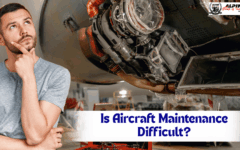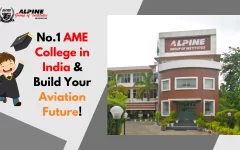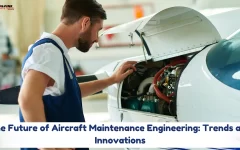Understanding Aircraft Maintenance Engineering: A Vital Role in Aviation Safety and Efficiency
2024-10-25 12:33Understanding Aircraft Maintenance Engineering: A Vital Role in Aviation Safety and Efficiency

Understanding Aircraft Maintenance Engineering: A Vital Role in Aviation Safety and Efficiency
Aircraft Maintenance Engineering (AME) is a specialized discipline dedicated to the maintenance, repair, and overall integrity of aircraft. AMEs are essential to the aviation industry, ensuring that all aircraft are safe, reliable, and compliant with stringent regulations. Their responsibilities range from conducting routine inspections to diagnosing complex mechanical issues, employing advanced technology and tools to maintain aircraft systems. Given the critical nature of their work, AMEs are integral to the aviation ecosystem and are highly respected professionals in their field.
Defining the Scope of Aircraft Maintenance Engineering
Aircraft Maintenance Engineering encompasses a multifaceted approach to inspecting, maintaining, and repairing aircraft. AMEs are tasked with ensuring that every aircraft meets the highest safety standards while operating at optimal efficiency. Their expertise is crucial in preventing accidents and enhancing the reliability of air travel. Key responsibilities include:
- Routine Inspections: Conducting systematic checks to identify potential issues.
- Repairs: Addressing mechanical and electronic faults promptly and effectively.
- Upkeep: Maintaining aircraft to ensure safe and efficient operation.
- Compliance: Adhering to stringent aviation safety standards and regulations.
- Diagnostics: Skillfully identifying and troubleshooting technical problems.
- Use of Advanced Tools: Employing cutting-edge technology for maintenance tasks.
- Accident Prevention: Playing a pivotal role in ensuring safe flight operations.
- System Expertise: Demonstrating comprehensive knowledge of various aircraft systems, including engines and avionics.
Essential Skills and Qualifications for AMEs
To excel in Aircraft Maintenance Engineering, professionals must possess a unique blend of technical and soft skills, including:
- Mechanical Aptitude: A strong foundation in technical skills relevant to aircraft systems.
- Attention to Detail: A meticulous approach to ensure precision and accuracy in all tasks.
- Problem-Solving Abilities: The capacity to diagnose and resolve complex issues effectively.
- Educational Background: License and a diploma or degree in Aircraft Maintenance Engineering is required.
- Certifications: Necessary certifications from recognized aviation authorities.
- Communication Skills: Proficiency in verbal and written communication to convey technical information clearly.
- Manual Dexterity: Competence in handling specialized tools and equipment.
- Commitment to Safety: A strong adherence to safety standards and practices.
Tools and Technology in Aircraft Maintenance
Aircraft Maintenance Engineers utilize a variety of sophisticated tools and technologies to ensure aircraft safety and functionality. Their toolkit includes:
- Diagnostic Equipment: Instruments for accurately identifying issues within aircraft systems.
- Power Tools: Essential for performing repairs and maintenance tasks effectively.
- Specialized Software: Applications designed for inspections, diagnostics, and troubleshooting.
- Borescopes and Ultrasonic Testers: Advanced tools for detailed inspections and non-destructive testing.
- Maintenance Management Software: Systems for maintaining meticulous records and ensuring compliance with regulations.
Staying abreast of technological advancements is crucial for AMEs to enhance efficiency and precision in their work.
Adhering to Safety and Regulatory Standards
A cornerstone of Aircraft Maintenance Engineering is the strict adherence to safety and regulatory standards. AMEs are responsible for:
- Compliance: Following guidelines set by aviation authorities such as the FAA or EASA.
- Thorough Inspections: Conducting detailed checks to identify potential safety issues.
- Routine Maintenance: Implementing regular maintenance schedules to prevent mechanical failures.
- Regulatory Updates: Keeping informed about changes in safety regulations.
- Record-Keeping: Maintaining comprehensive maintenance logs to ensure accountability and transparency.
- Safety Protocols: Ensuring all repair and maintenance work meets established safety standards.
Challenges and Rewards of an AME Career
Pursuing a career in Aircraft Maintenance Engineering comes with unique challenges and rewards:
- Demanding Work Environments: AMEs often operate under high-pressure conditions requiring precision and quick thinking.
- Strict Deadlines: Timely completion of maintenance tasks is crucial to ensure flight schedules are met.
- High Safety Standards: The nature of the work demands unwavering adherence to rigorous safety protocols.
- Continuous Learning: Staying current with evolving technology and industry standards is essential.
- Job Stability: The aviation industry offers reliable employment prospects for skilled AMEs.
- Competitive Salaries: Professionals in this field can expect attractive compensation packages.
- Passenger Safety: The rewarding feeling of contributing to the safety and reliability of air travel.
Conclusion
Aircraft Maintenance Engineering is a vital and dynamic field that plays a critical role in ensuring the safety and efficiency of air travel. This profession demands a combination of technical expertise, meticulous attention to detail, and a strong commitment to safety standards. Despite the challenges of high-pressure environments and the need for ongoing education, the rewards—including job stability, competitive salaries, and the fulfillment of safeguarding passenger safety—make AME a compelling career choice for those passionate about aviation and mechanical engineering. With numerous opportunities for career advancement and technological innovation, Aircraft Maintenance Engineering offers a promising path for aspiring aviation professionals.








